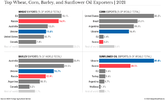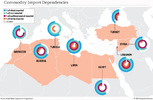- Joined
- 1 April 2006
- Posts
- 509
- Reactions
- 0
lot of talk about the soft commodities getting big... latest airreview picks sugar and wheat due to inputs for biodiesel - others are saying China food imports in next decade will push demand for the soft commodities as well...
what stocks are best exposed to such a rise? eg CSR sugar. Are there diversified soft commodites stocks like diversified resources? Which ones look ago?
what stocks are best exposed to such a rise? eg CSR sugar. Are there diversified soft commodites stocks like diversified resources? Which ones look ago?


